Life
Sign up for our newsletter
We summarize the week's scientific breakthroughs every Thursday.
-
 Neuroscience
NeuroscienceYasser Roudi: Creating maps in the brain
Physicist Yasser Roudi does the math on how the brain and other complex systems process information.
By Susan Gaidos -
 Life
LifeGia Voeltz: Redrawing the cell’s floor plan
Cell biologist Gia Voeltz has changed our view of the endoplasmic reticulum.
By Meghan Rosen -
 Genetics
GeneticsFeng Zhang: Editing DNA
Scientist Feng Zhang has developed a system to easily and precisely edit genomes.
By Susan Gaidos -
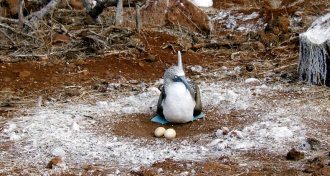 Animals
AnimalsBlue-footed boobies dirty their eggs to hide them from predators
Blue-footed boobies lay bright white eggs on the ground. Dirtying the eggs camouflages them against gulls, a new study finds.
-
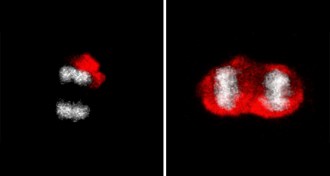 Life
LifeOld stem cell barriers fade away
Barrier that keeps aging factors out of stem cells breaks down with age.
-
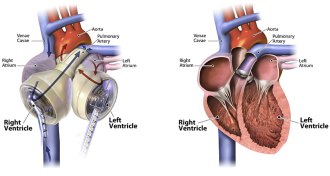 Health & Medicine
Health & MedicineIn 1965, hopes were high for artificial hearts
Developing artificial hearts took longer than expected, and improved devices are still under investigation.
-
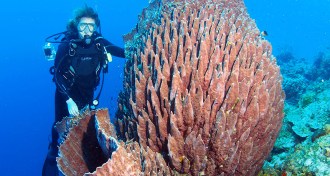 Oceans
OceansGiant barrel sponges are hijacking Florida’s coral reefs
Giant barrel sponges are gradually taking over and threatening Florida’s coral reefs, a new census suggests.
-
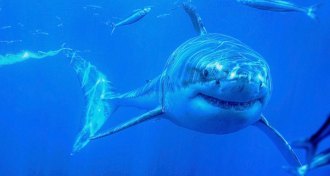 Animals
AnimalsWhy we need predators
It might be easy to say that we should wipe out species that can kill us. But the effects of such action would be far ranging.
-
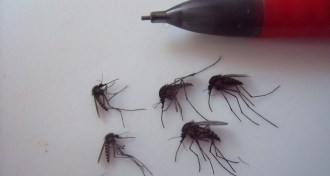 Animals
AnimalsWarmer waters give Arctic mosquitoes a growth spurt
Arctic mosquitoes develop faster in warmer waters, outpacing increased predation.
-
 Animals
AnimalsDogs flub problem-solving test
Confronting a tough task, dogs are more likely than wolves to give up and gaze at a human
By Susan Milius -
 Animals
AnimalsFor a female mosquito, the wrong guy can mean no babies
Male Asian tiger mosquitoes leave female yellow fever mosquitoes uninterested in mating with their own species, a process known as “satyrization.”
-
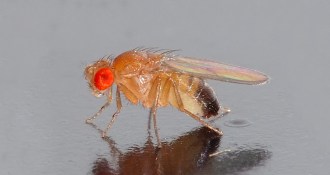 Genetics
GeneticsEvolution caught red-handed
Scientists have named a new gene on the fruit fly Y chromosome “flagrante delicto Y.”